Who is Kyle Trenga?
Kyle was eight years old when he called his mother in California to tell her he wasn't coming home. He was visiting his father and grandmother in Idaho for the summer – far away from the meth labs he grew up in.
Both of his parents were addicts. His father manufactured and sold the drug from a lab in Big Bear, California. His mother would lock herself in her room for days at a time.
"It was a very toxic childhood," Kyle says, speaking with the matter-of-fact tone of someone who has spent decades processing trauma. "They're amazing people now, but they kind of showed me what I didn't want to do. They were almost reverse role models."
This is the origin story of a man who would eventually become known as "Cupcake"—a Navy veteran electronic technician turned oil field worker turned semiconductor engineer turned unlikely pickleball media personality.
At thirty-six, Kyle has lived several lifetimes, each chapter marked by the same pattern: total immersion followed by reinvention. It's a trait he traces back to his parents' addiction. "I think I'm an addict, too," he says. "I just choose to focus my addiction on healthier things."
Breaking and Entering for Art
Growing up in Idaho under his father's gradually sobering influence, Kyle threw himself into sports with the intensity of someone fleeing something darker. Football, rugby, shotput, discus, snowboarding. “If there was a competition for anything, I was competing.”
But it was skateboarding that first revealed his capacity for creative destruction.

In the sixth grade, Kyle's mother bought him a Sharp Hi8 camera, and he became obsessed with making skate videos. When he couldn't afford a fisheye lens, he and his friends broke into South Junior High and stole the lens from an overhead projector, duct-taping it to his camera for the wide-angle effect. "We got creative," he says with the pride of someone who has never met a rule he couldn't bend. He cobbled together videos by ripping off a cracked version of Sony Vegas off Limewire.
The videos were just for fun at first, but this story defines Kyle's approach to life. It's the mindset of someone raised on the margins, where legitimate paths seemed designed for other people's children.
Capturing Pirates
When college football scholarships proved too small and too few, Kyle joined the Navy. Six years, two deployments, and one pirate capture later, he had found his calling in dangerous, high-paying work.
The pirate capture mission—which landed him in the New York Times and on world news—reads like something from a thriller novel. His VBSS team (Visit Board Search and Seizure) rescued Iranian fishermen held hostage by Somali pirates off the Horn of Africa, zip-tying the perpetrators and transferring them to the Seychelles for prosecution.
The operation began when Trenga's ship made routine radio contact with what appeared to be an Iranian fishing vessel. But their chief engineer, who happened to speak Urdu, intercepted desperate calls for help from the crew—communications the Somali pirates couldn't understand. "We would ping everybody over the radio just to make conversation," Trenga explains. "And one of the guys spoke a language that the Somalis didn't, and our chief engineer spoke it too."
That night, a helicopter equipped with thermal imaging confirmed their suspicions: instead of the expected eleven fishermen, twenty-six people were crowded aboard the vessel.
The team had spent the rest of the night preparing—taking pre-workout supplements, checking weapons, running through scenarios. "We all were taking pre-workout, getting all jacked up, ready to take on our first real world mission. We get on this inflatable boat called a RIB boat on the side of the ship that they can't see," Trenga says. "And then it has a 240 gun on the front. And then we all have M4s and our 9-mils and we load up."
Twelve sailors plus the NCIS agent – callsign Wolf– speeding toward an unknown situation.
The boarding sequence was the most dangerous moment. "We pull up, the first guy climbs up. It was my buddy Clark," Kyle recounts.
"His job is basically get up as fast as you can and then get your gun out and just keep security. Because the second guy up the ladder has to tie the ladder off. So it's not just hanging by a hook." The caving ladder was barely the width of a man's foot, swaying against the hull as armed men climbed it wearing full gear. Trenga was third up.
The pirates, sensing the inevitable, had made a calculated decision the night before. "They had thrown over a majority of their weapons because they didn't want to get shot," Trenga explains. "So they were just trying to hide. Mainly."
The helicopter crew had watched them dumping evidence and arms overboard under cover of darkness—pirates knew that some navies shoot first and ask questions later.
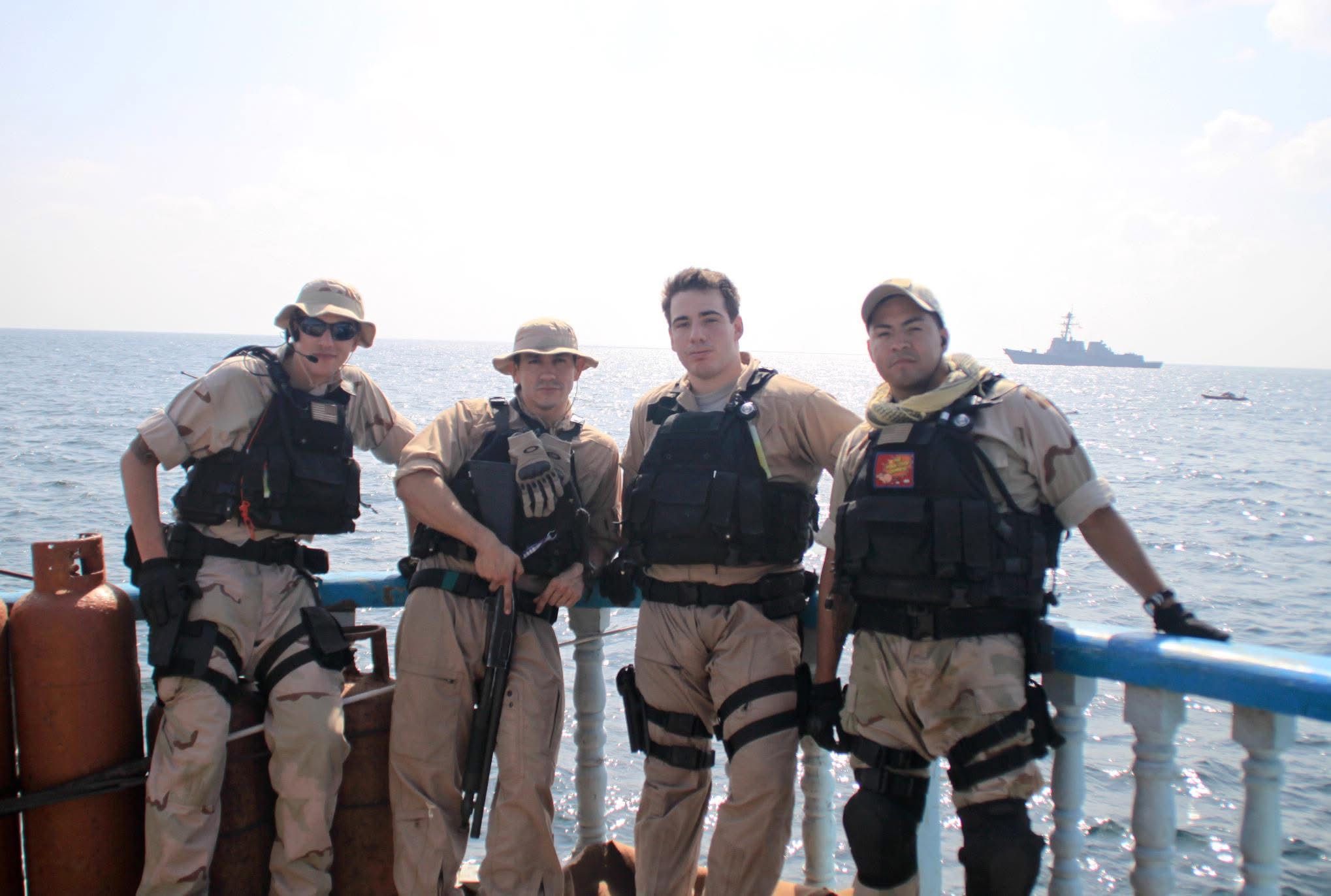
What followed was a methodical room-by-room clearing operation. "We just start clearing rooms, and we're just taking these guys and zip tying them up," Trenga says. They found scattered weapons—a gun in the engine room, another in the pilot house—but no resistance. The pirates had already achieved their psychological victory: they'd killed the first mate to terrorize the remaining fishermen into compliance.
During this retelling, I found the casual way he discusses armed boarding operations, the tactical considerations, the life-and-death decisions so interesting. This is someone for whom extraordinary risk became routine.
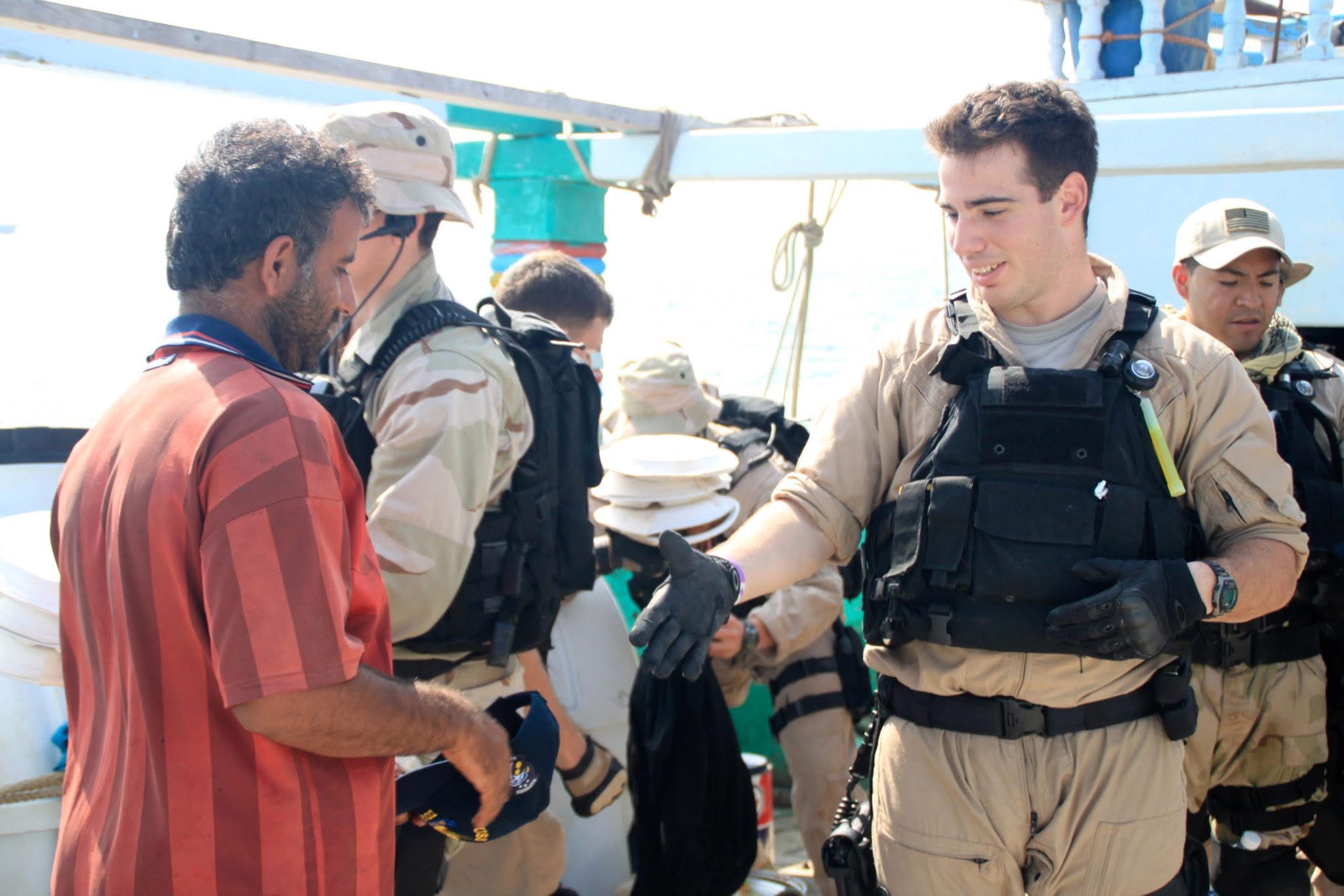
A New York Times reporter had embedded with the operation, documenting the rescue with photographs that would appear in newspapers worldwide. "That was our fifteen minutes of fame," Trenga says. "We were on world news and every newspaper." The images show a much younger Kyle, his face partially obscured by tactical gear, part of a team that had just prevented what could have been a maritime tragedy.
The Discovery
Pickleball found Kyle in 2019, at a moment when he was settling into domestic life in Boise with his second wife and their children. Her parents described it as "basically like ping pong, but you're standing on top of the table."
Kyle’s enjoyment of ping pong began in childhood, where he played intense games called "sting pong” where losers face away shirtless, and winners welt the ball at your back. The fun continued into adulthood, leading him to wager hundreds of dollars per game on oil rigs.
After one session of pickleball, he was hooked. He bought four Rally Tyro Pro paddles and some Onyx balls from Amazon. When he posted about it on Facebook, a friend directed him to Manitou Park, one of the two main pickleball venues in Boise. When he stepped on the courts, older players welcomed him with cookies and patience, teaching him the rules and etiquette. Then two ex-badminton players named Chin and B. Lee destroyed him 11-0 without mercy.
"After taking that beating, I knew someday I'd beat those guys," Kyle recalls. "And just like that I was addicted."
The Paddle Hustle
Kyle’s competitive drive quickly ran up against an expensive reality: he kept breaking paddles.
At $150 each, "which at that time was insane,” his new addiction was becoming financially unsustainable. So he did what any hustler would do: he figured out how to get them for free.
First, he became a sales rep for Diadem, a Florida-based paddle company. He started by selling to friends at cost, not making any money but securing his own supply. When word spread and demand grew, he filed for an LLC called Dink Smash Media to qualify for wholesale pricing. Soon he was buying paddles in bulk and selling them from the trunk of his car at parks around Boise.
"I sold 63 warrior edges in one sale," he says with the satisfaction of someone who has just pulled off a particularly elegant con. The older players at the parks became his customer base, and when he visited Manitou Park recently—the day before it was permanently closed to pickleball—some were still playing with paddles he'd sold them years earlier.
The Media Personality
Kyle's transition from paddle dealer to media personality came through Braydon, the creator of Pickleball Effect. They had played against each other in tournaments and knew each other around Boise's tight-knit pickleball community. When Braydon went through two co-hosts and needed someone with camera experience to help give the podcast a "facelift," he reached out to Kyle.
There was one condition: to avoid conflicts of interest, Kyle would have to stop selling paddles. He agreed, liquidating his inventory and transitioning to the affiliate model that most content creators use. The podcast, now approaching its 95th episode with Kyle as co-host, has become a significant voice in the pickleball world.
But the transition wasn't without cost. The time and energy Kyle poured into pickleball—training, playing, filming, selling, podcasting—created strain in his marriage.
His wife didn't share his passion for the sport and wasn't supportive of what she saw as an obsession. "She thought it was kind of a joke," he says. "I felt like what I wanted to do was kind of a joke, which made me really depressed."
The Breaking Point
By November of last year, Kyle's life was unraveling. His marriage was over, he was weighing over 300 pounds, and he was on both antidepressants and blood pressure medication. The divorce proceedings turned ugly when his wife, despite their agreement to use the same lawyer, presented papers demanding 100% of their house sale, 80-20 custody, substantial child support, and for Kyle to assume all marital debt.
"I had my first panic attack," he recalls. "And I had a dozen friends take their lives, too. I was just in a really bad spot."
The breaking point came in his closet, alone, with a gun in his mouth. "I couldn't do it because of my kids," he says. "In that moment I realized things desperately needed to change."
In the dark closet, a switch flipped.
“I'm just gonna go all in the way I do. I'm just gonna go all in. I'm gonna be the best dad I can be."
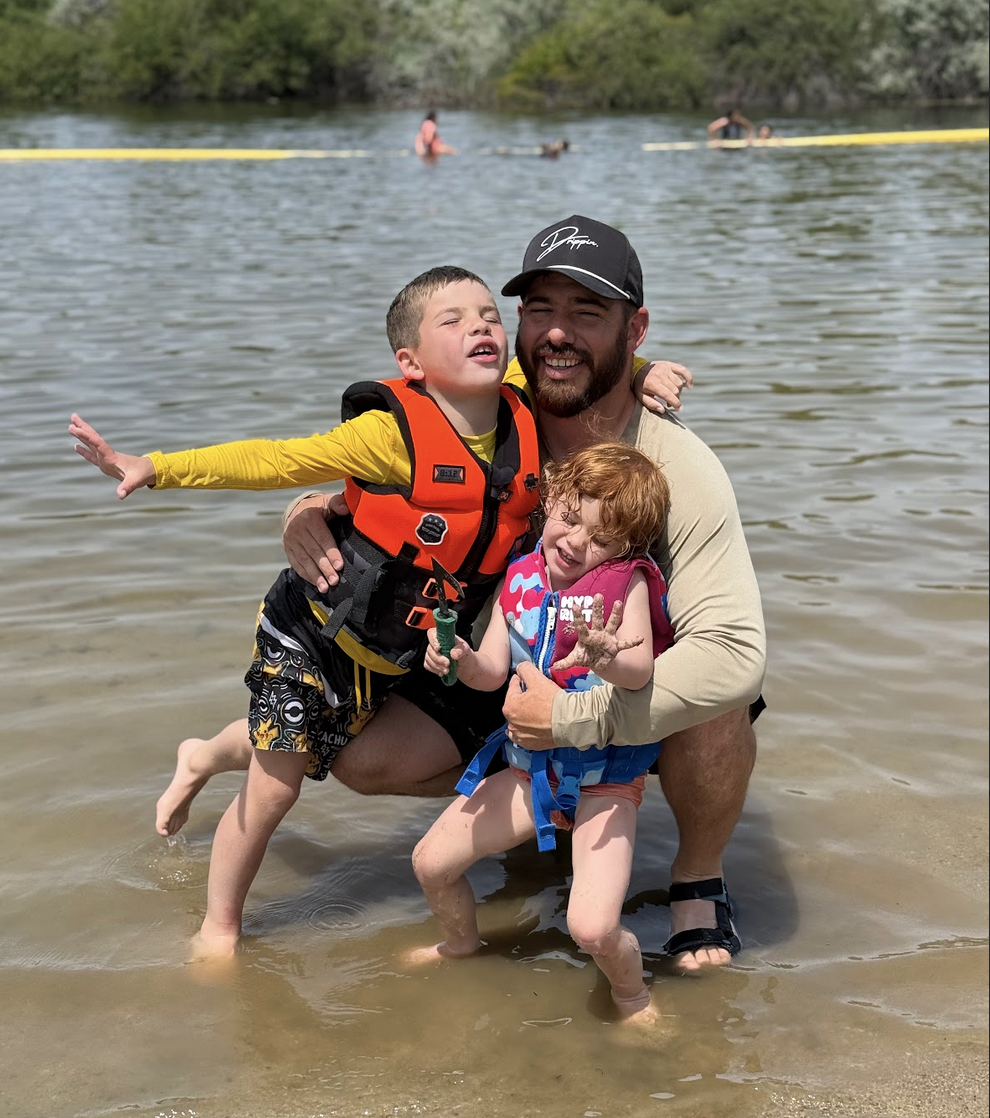
The Reinvention
The physical transformation has been dramatic. From a peak of 312 pounds in Vegas earlier this year, Kyle has lost 80 pounds and is targeting 100 by year's end. He wakes up at 5 AM to work out, has completed multiple 20-mile runs, and will run his first marathon in October.
A stranger reached out to coach him after hearing about his marathon goals on the podcast.
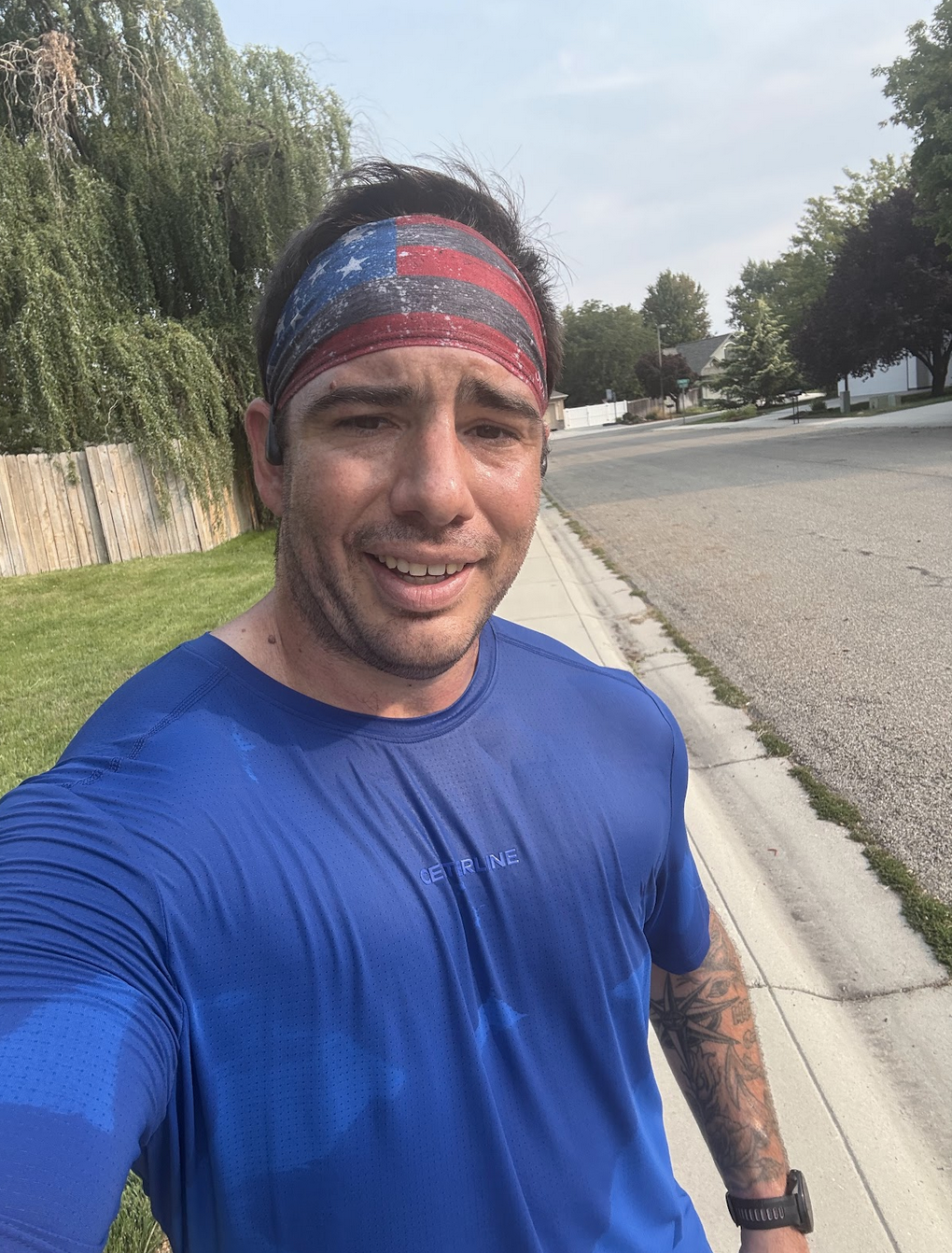
But the psychological transformation is perhaps more significant. "I think I've become very good at wearing a mask," he says, "letting people see what I want them to see, not necessarily how I'm actually feeling." The admission comes easily, without self-pity or apology. It's the insight of someone who has learned to survive by managing his public persona.
The pickleball community has provided unexpected support during his darkest period. When David from 11SIX24 learned about the divorce, he sent a care package with pizza gift cards for the kids and a water bottle. "That brought me to tears," Kyle says. "He didn't have to do that."
The Courts of Law
While Kyle was rebuilding his personal life, Boise's pickleball community was facing its own crisis. The two main public courts where Kyle learned to play—Manitou Park and Willow Lane—are being shut down due to noise complaints and a lawsuit from a resident, who was seeking $1.6 million in damages.
The city's response was swift: settle the lawsuit and permanently ban pickleball from both locations. "I'm not even that mad at the lady that sued," Kyle says, "because she's been complaining for so long, Boise has had plenty of time to either make new courts or relocate the courts. I honestly think they were just waiting for the lawsuit so they had an out."
For a community built around accessibility and inclusion—elderly players on fixed incomes, working parents seeking evening exercise, newcomers learning the game for free—the closures feel like a betrayal. The city's plan to resurface the courts for tennis, despite minimal usage, adds insult to injury. "How about you just don't do that and save the money?" Kyle asks. "Go build some more courts for us somewhere else. Away from houses."
The Future Game
At thirty-eight, Kyle is still searching for his next chapter. The semiconductor job pays well but doesn't feed his soul the way pickleball does. He's experimented with various pickleball-adjacent businesses—muscle rubs infused with CBD, training devices built in his garage—looking for a way to turn his passion into a sustainable career.
"I want to find some way to make pickleball a career," he says. "I don't know how I'm gonna do that yet. I'm just gonna keep trying different things until I figure it out."
His motivation is both personal and philosophical. "There's no sport I can think of that brings people together the same way," he says. "You can go to any city in America, show up at the park, and then you're instant friends. It's wild to me."
The Man Behind the Mask
Kyle's story is ultimately about transformation and the ability to find meaning and community in unexpected places. From a childhood shaped by addiction and instability, through careers defined by danger and adrenaline, to an athlete anchored by paddle sports and podcasting, he has consistently chosen engagement over retreat, community over isolation.
The name "Cupcake" came from his Navy days, when he was often found in the ship's galley late at night with his then-girlfriend, just hanging out. His teammates would joke, "Kyle is down there just cupcaking with his wife." It stuck, and now tens of thousands of pickleball players know him by that call sign.
There's something fitting about the nickname—this soft, sweet moniker attached to a man who has boarded hostile vessels, worked on oil rigs, and rebuilt his life from the ground up multiple times. It captures the paradox of both the man and the sport he champions: toughness wrapped in accessibility, competition built with community, intensity served with a smile.
As Boise's pickleball courts disappear and new ones slowly emerge, as Kyle's marathon approaches and his weight loss continues, as the podcast grows and his children learn to love the game he has made his mission, the story continues to evolve.
The eight year old boy who chose his own path is still choosing it, one dink and smash at a time.
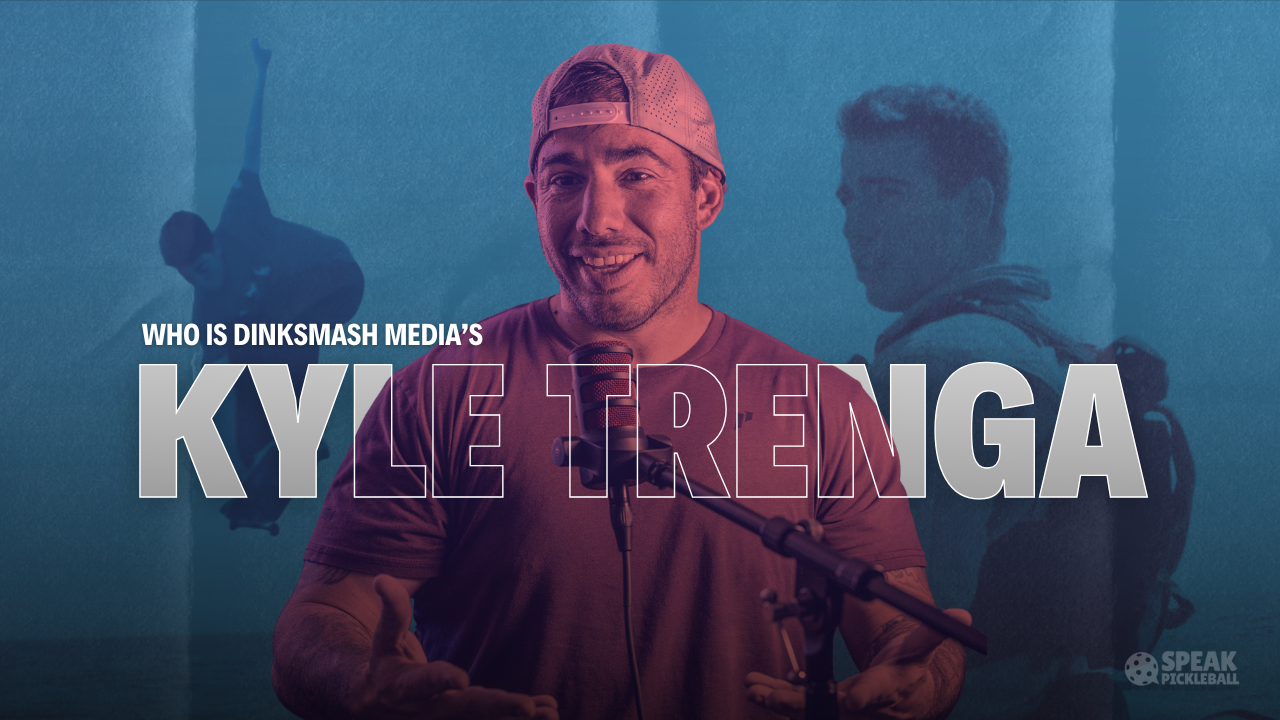
.svg)
Lorem ipsum dolor sit amet, consectetur adipiscing elit. Suspendisse varius enim in eros elementum tristique. Duis cursus, mi quis viverra ornare, eros dolor interdum nulla, ut commodo diam libero vitae erat. Aenean faucibus nibh et justo cursus id rutrum lorem imperdiet. Nunc ut sem vitae risus tristique posuere.
Lorem ipsum dolor sit amet, consectetur adipiscing elit. Suspendisse varius enim in eros elementum tristique. Duis cursus, mi quis viverra ornare, eros dolor interdum nulla, ut commodo diam libero vitae erat. Aenean faucibus nibh et justo cursus id rutrum lorem imperdiet. Nunc ut sem vitae risus tristique posuere.